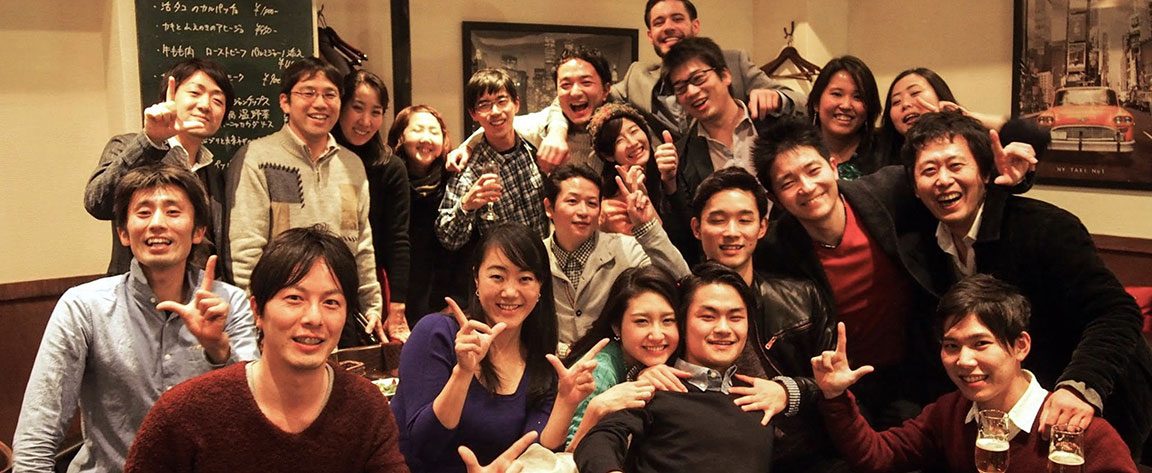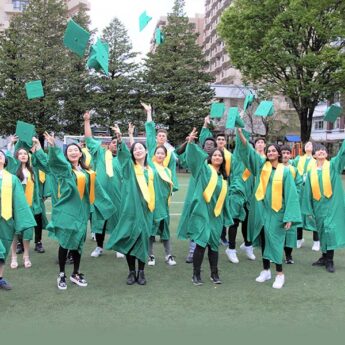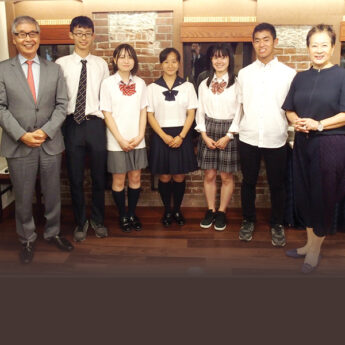The UK’s higher education sector is undoubtedly one of the country’s major success stories, with several institutions high in global rankings, or even topping them.
Such success is a major draw for prospective students across the world, and not least in Japan—indeed, several members of the imperial family have received part of their education in the UK. Most recently, Princess Kako of Akishino enrolled at the University of Leeds in September for one year as an exchange student.
Thanks to the many alumni associations in Japan, the benefits can continue for graduates of UK universities. And although there are relatively fewer graduates from the UK, there are many alumni associations.
Of these, a few notable ones stand out: the University of Birmingham, the University of Leeds and London Daigaku Kai (LDK), which represents the constituent colleges and institutions of the University of London, as well as Imperial College London.
Meanwhile, other universities are in the process of building their respective alumni associations. The University of Arts London, for example, counts Japan as the home of its second-largest alumni population outside the UK, and it officially launched its own group in April 2016.
Rich tradition
But by far the oldest is the Cambridge & Oxford Society, which dates back to at least 1906 and has chapters in Tokyo and the Kansai area. Currently, it has about 300 members, and usually hosts two events each month. The highlight of the calendar, however, is the Early Summer Party, which takes place at the British Embassy Tokyo.
“About two-thirds of our members are Japanese nationals; the other third are mostly British, but a fair number of other nationalities are also represented”, said Tim Minton, representative and membership secretary of the society. Members range in age from their early twenties to late eighties and their occupations run the gamut from members of the Japanese Imperial Family to entrepreneurs, lawyers, government officials and even one geisha.
Work and play
An active calendar is key to the work of alumni groups. The LDK, for example, host monthly drop-in gatherings at a Roppongi pub.
The get-togethers provide opportunities for alumni to network, gain insights from visiting academic staff and reminisce about their student days. Owen Traylor, senior research fellow at the University of Kent’s Conflict Analysis Research Centre and a member of the Cambridge & Oxford Society both today and from 1981 until 1984, vouches for the professional benefits of the society.
“When I was a member in the eighties while working at the British Embassy, I’m sure the society boosted my range of Japanese contacts”, he recalled.
Key influence
As well as having value for the alumni, these groups are also of great benefit to the universities themselves. Chika Takahashi, head of education at the British Council in Japan, describes Japan-based alumni as vital in promoting UK higher education in the country.
“Alumni are key influencers and, as such, we would love them to get involved in our student-facing activities as much as possible”, she said. “They have first-hand experience of life and study in the UK and, by sharing their experiences, they can inspire many more students to head out to the UK and broaden their horizons”.
And they can also clear up misconceptions.
“Having this active body of advocates and supporters really helps enhance our reputation locally and can also helps dispel any myths others may have about us”, said Alison Beale, director of the University of Oxford’s Japan office and vice president of the British Chamber of Commerce in Japan’s Executive Committee. “Our alumni societies play an important role in providing role models for prospective students”.
The promotional role for alumni groups is taking on greater importance now that many UK universities are increasing their efforts to attract international students, particularly given their economic value.
“UK institutions are increasingly looking to Japan as a key source of quality students and consider their existing alumni networks to be a long-term investment for developing their presence in Japan”, said Junko Aoyagi, director at BEO Ltd., a consultancy that works with universities to recruit students from Japan.
In the case of the University of Leeds, this means alumni assisting university representatives at various events, said Mizuki Otsubo, Japan representative for the university.
Gearing up
Although many alumni groups already receive strong support from their associated university, the increased globalisation of UK higher education means universities now need to offer even greater support, in turn enabling the alumni associations to help them with their efforts.
“Conditions are perfect for these alumni groups to get more involved in supporting the universities to communicate with potential Japanese students”, said Aoyagi. “It is also important for graduates involved in running alumni networks to ask for more support from the universities in maintaining a contact database and running regular events for Japanese graduates”.







